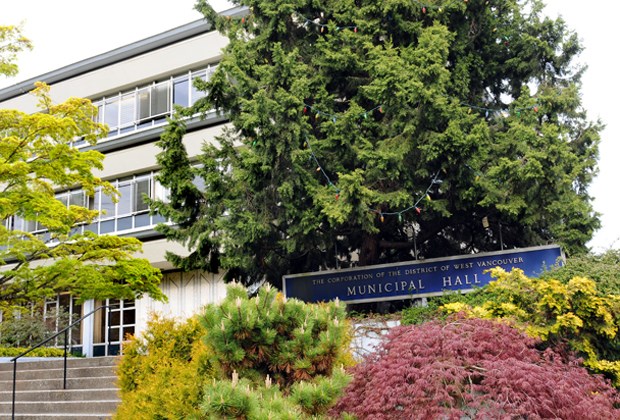It’s going to cost West Vancouver taxpayers more to flush their toilets but less to have their trash picked up.
Starting with the good news first, homeowners will save some green through a 10 per cent decrease in solid waste fees next year – because West Vancouver residents and business owners are thinking green.
Since the 2010 introduction of green cans in the municipality, along with biweekly garbage pickup, an increasing amount of food waste and recyclables is being diverted away from garbage cans.
Residents deserve credit, as (biweekly garbage collection) “wasn’t an easy thing to do,” engineering services manager Phil Bates told council at its Dec. 5 meeting. Less frequent garbage pickup results in lower costs, lower garbage volumes and lower greenhouse gas emissions, he added.
Improved tracking of illegal dumping and separate containers for dog waste in multiple district parks were introduced this year. In early 2017, staff plan to launch a Horseshoe Bay streetscape recycling pilot, which will see the existing refuse cans replaced with three-stream bins for paper, container recycling and garbage.
Mandatory separation of packaging and printed paper, recycling, food scraps and yard trimmings from the garbage is a proposed policy change for next year.
Meanwhile, West Vancouver engineering director Raymond Fung confirmed residents are not imagining the relatively high price they pay for water and sewer: West Vancouver does dole out more money for those services.
Water hogs, geographic challenges and aging infrastructure can be blamed for high utility fees, which are going up next year and continuing to rise incrementally until at least 2020.
“In my opinion, it has largely to do with outdoor irrigation during the summer,” said Fung, when asked about increased water consumption.
Because the district’s landscape is largely long and narrow and hilly, there are a lot of pipes and other underground systems to manage on the infrastructure side, said Fung.
Each resident funds 7.8 metres of West Vancouver’s water main, compared to the City of North Vancouver, with almost the same population, whose residents are responsible for 2.5 metres each.
West Vancouver’s infrastructure is also getting old and approaching “the end of its useful life, particularly the underground utilities.” The engineering department did an infrastructure inventory in 2009 to see when each component would need to be replaced.
In 2010, realizing utility rates at that time weren’t going to cut it, council approved a 10-year annual increase in sewer and water fees to reach a long-term sustainable funding level.
Sewer fees will be going up 10 per cent or $86 next year, bringing the total sewer fee to $945 for the average taxpayer.
Next year’s interim water rate will increase by 5.5 per cent from 2016, meaning the average West Vancouver single-family household will pay $619 in water fees. Those fees might need some fine-tuning, said Fung, based on water consumption stats. While lower in 2010, in recent years water consumption has crept back up again. A revised rate is expected sometime in the next four months for council’s consideration.
The sewer fee increase does not factor in the costly replacement of the Lions Gate Wastewater Treatment Plant. Fung said they are hopeful a funding announcement will be made early next year, ahead of the provincial election.
Coun. Bill Soprovich said utility rates, which are a standalone entity, could be higher than property taxes in the future.
In three years, West Vancouver taxpayers will be looking at a $1,258 annual sewer bill and a $728 water bill, based on current projections.
Coun. Nora Gambioli questioned if water main costs are unfair to people who live in apartments. But Fung said denser areas can result in other infrastructure costs. Highrises, for instance, require higher water main pressure for fire protection than a single-family home.
Daily water consumption is increasing in West Vancouver and currently sits at 575 litres per person per day. There is a metered system for both water and sewer, said Fung, adding households that consume less water can save money.
Breaking down the numbers, Coun. Mary-Ann Booth, said it costs $1.70 a day to turn on the taps and $2.60 to flush the toilet for the median household.
“From a value proposition perspective, I think that’s important for people to keep in mind,” said Booth.
Council members voted unanimously in favour of the utility fee bylaws.



